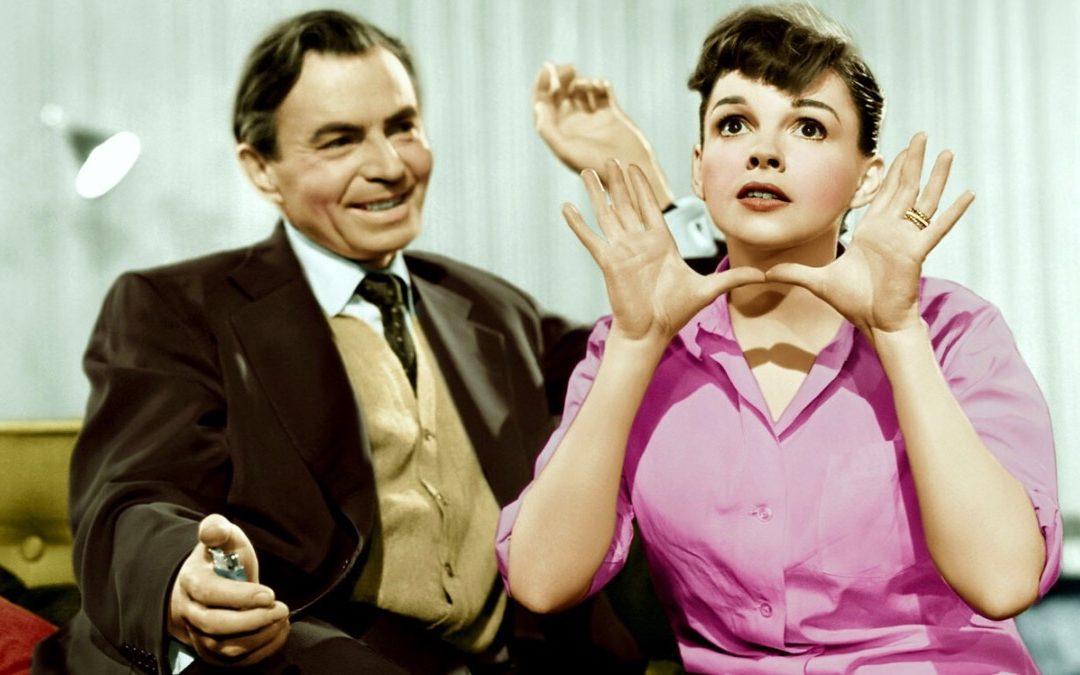Now we get to the take on A Star is Born that had been most lauded so far. The 1954 film has long been heralded as the definitive version. While it’s been common in recent decades for non-musical films to be remade as musical films (albeit typically with a stage musical in the middle) the question should always be whether the music adds anything. Usually in a musical the songs are part of the action, as if the characters are naturally communicating with each other via song. It’s possible for a film to simply feature a character singing as part of a performance or two for other characters-that doesn’t make the film a “musical”
The problem with this film is that it tries to have it both ways. Rather than telling the existing A Star is Born story using music-or complementing the existing dramatic scenes with ones of characters expressing their feelings through song-it basically duplicates all the scenes of the 1937 A Star is Born and stops in the middle to give us The Judy Garland Show. I’m not talking about the later TV show she hosted in real life-I’m talking about how this movie just makes us sit through a solid half hour of her singing various stage numbers completely extraneous to the plot. I get that the in-universe film featuring these songs is what makes Vicky’s character an overnight sensation. However, the point could have been made through just one show-stopping number instead of a half dozen attempts at one. As a writer and a huge film fan, I know that oftentimes people will cut out a one minute scene or even a mere line of dialogue for the sake of pacing; it’s inexcusable that the filmmakers here bring the whole story to a standstill for what amounts to TWENTY PERCENT OF THE ENTIRE consequently bloated running time.
I’m not denying Judy Garland sang well the whole time-I don’t think anyone would deny she’s an amazing singer. If that’s what you care about though, I’d suggest watching The Wizard of Oz or one of her actual musicals, rather than a dramatic film with a bunch of numbers by her shoehorned in. This film does have powerful scenes but they’re carbon copied from the 1937 film. As far as positive new contributions, since Vicky is a singer here there is a coach of hers added as a mentor. He takes the place of the grandmother from the earlier film though so it’s just taking from the right hand to give to the left. To give less to the left than you took from the right, really. The grandmother came across as Vicky’s rock her whole life, while this coach seemed a bit like a doormat she’d shafted in favor of Norman and a film career. Meanwhile, this film still has the same problem as the previous one in that Judy Garland and James Mason have no chemistry; they just seem like a random old man and young woman.
Final verdict: No point! If you’ve seen the 1937 film, you have nothing to gain from this version. If you haven’t seen the 1937 film and really want to watch this one, watch that instead and you’ll get to watch all the good parts of this while saving an hour out of your life.
I’ve made clear I like the 1937 A Star is Born best out of any of the films I’ve reviewed so far. Keep reading to find out my favorite version though! Here’s the next one.
%

Recent Comments